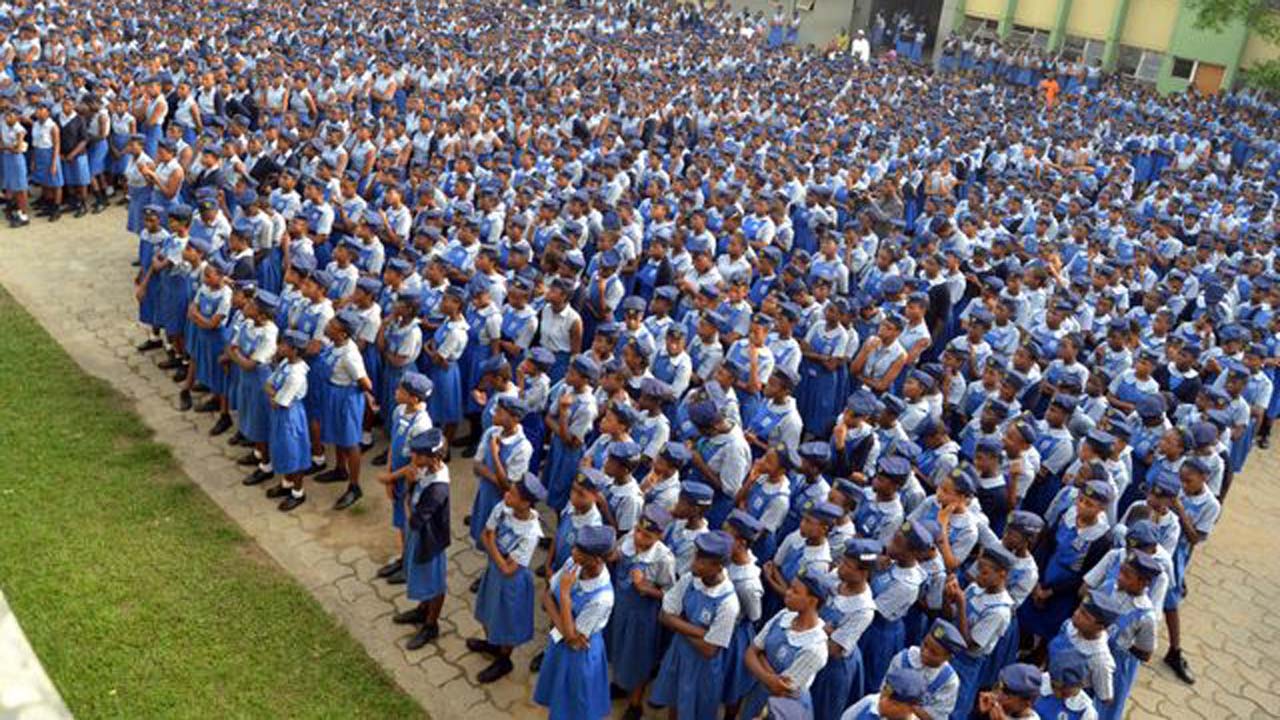Lagos Okays Resumption Of Academic Activities At Queens College


Govt seeks proactive measures to avert disaster in Unity colleges
Students of Queens College, Yaba, Lagos, can now resume for academic activities as analysis of water samples from all water delivery points at the college shows the satisfactory result, Lagos State Commissioner for Health, Dr Jide Idris, has said.
According to a press statement by the Director, Public Affairs of the ministry, Adeola Salako, and obtained by The Guardian, the school authority in collaboration with the Parent Teacher Association (PTA), Old Girls Association and the Federal Ministry of Education has successfully addressed the water crisis that claimed the lives of three pupils at the college, which led to indefinite closure of the school.
Idris, while giving an update on the outbreak of gastroenteritis in the school, said control measures have been put in place to prevent such incident from reoccurring.
Some of the measures are decommissioning of the multiple contaminated water sources, deployment of a single water source with water treatment, renovation of the dining hall, decontamination of the hostels and overhauling of the sewage system and clearance of the septic tanks.
In addition, Idris said that the periodic testing and retesting of water sources would still go on in line with international best practices.
He also revealed that four out of the 25 infected kitchen staff that were treated and retested still harbour some bacteria, recommending that the four kitchen staff be made to undergo further treatment, be prevented from handling food and redeployed from the kitchen area.
Idris recalled that since the outbreak of the disease in the school, 40 cases were admitted in various public and private hospitals in the state, 37 cases were discharged after full recovery, while the remaining three were unfortunately lost to the disease.
The Commissioner noted that though no new case of the disease has been reported since the last case was discharged on April 18, 2017, he warned that sporadic cases might still occur due to multi-microbial nature of the disease occurrence.
He urged proprietors of schools in the state to ensure strict compliance to personal and environmental hygiene by ensuring provision of safe water, appropriate refuse disposal, conduct of food handlers’ test for kitchen staff and food vendors biannually and continuous monitoring of water and sewage treatment plants and encourage students and all to imbibe the culture of regular hand washing with soap and water.
Meanwhile, federal unity colleges have been tasked to take more pro-active measures to secure the lives of students entrusted to their care.
The Acting Permanent Secretary of the Federal Ministry of Education, Dr Husseini Adamu, gave this directive while declaring open a workshop on “Education in emergencies/emergency preparedness and response” for Vice Principals (Special Duties) in the North Central, South East, South South and South West geo-political zones in the country.
Husseini stated that the purpose of the workshop was to, among others, create awareness about the importance of Education in Emergency (EIE) and what should be done to reduce vulnerability.
He observed that Nigeria has, in the recent past, witnessed a myriad of emergencies, ranging from flooding, fire outbreaks, Ebola virus epidemic to armed conflicts, which according to him affect students more.
He noted that the worst was the Boko Haram insurgency in the North East zone since 2009, which affected five of the 104 Federal Government colleges: Federal Government College, Buni Yardi; Federal Science/Technical College, Michika; Federal Government Girls’ College, Potiskum; Federal Government College, Monguno and Federal Science/Technical College, Lassa.
However, he pointed out that FGGC, Potiskum and FGGC, Munguno were later re-opened, but FGC, Buni Yardi, FSTC, Lassa and FSTC Michika are still closed.
He, therefore, urged participants to prepare for the unexpected, which requires planning ahead.
Consequently, he recommended that effective communication should be crucial and timely in preparing the students, staff as well as the neighbouring communities for emergencies.
Source: The Guardian








